Her connection with history makes chef Manzilat Fatima among the rare inheritors of a fading culinary lineage. We speak to her about inheriting the legacy and the stories
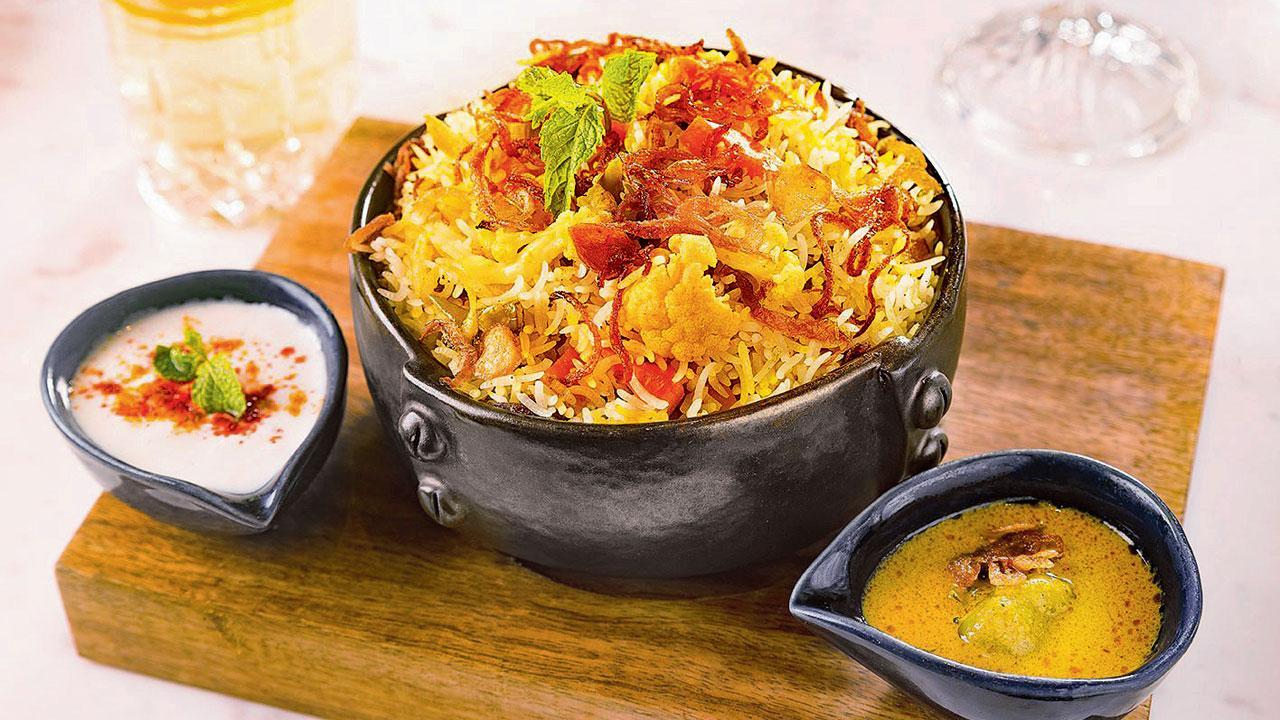
Awadhi biryani
Every family boasts of a kitchen secret; whispered by grandmothers to doting grandchildren during summertime soirees in the kitchen. For chef Manzilat Fatima, this was a little more special. The great-great-granddaughter of Nawab Wajid Ali Shah, the last Nawab of Awadh, her kitchen secrets are deeply intertwined with India’s history.
ADVERTISEMENT
The chef and founder of Kolkata’s famed Manzilat’s will be serving a sample of this heritage at the Royal Rivayat at Ummrao Courtyard by Marriott. “When we were young kids, we did not realise the importance of the recipes. It was only when friends would visit that they would be astounded,” she reminisces.
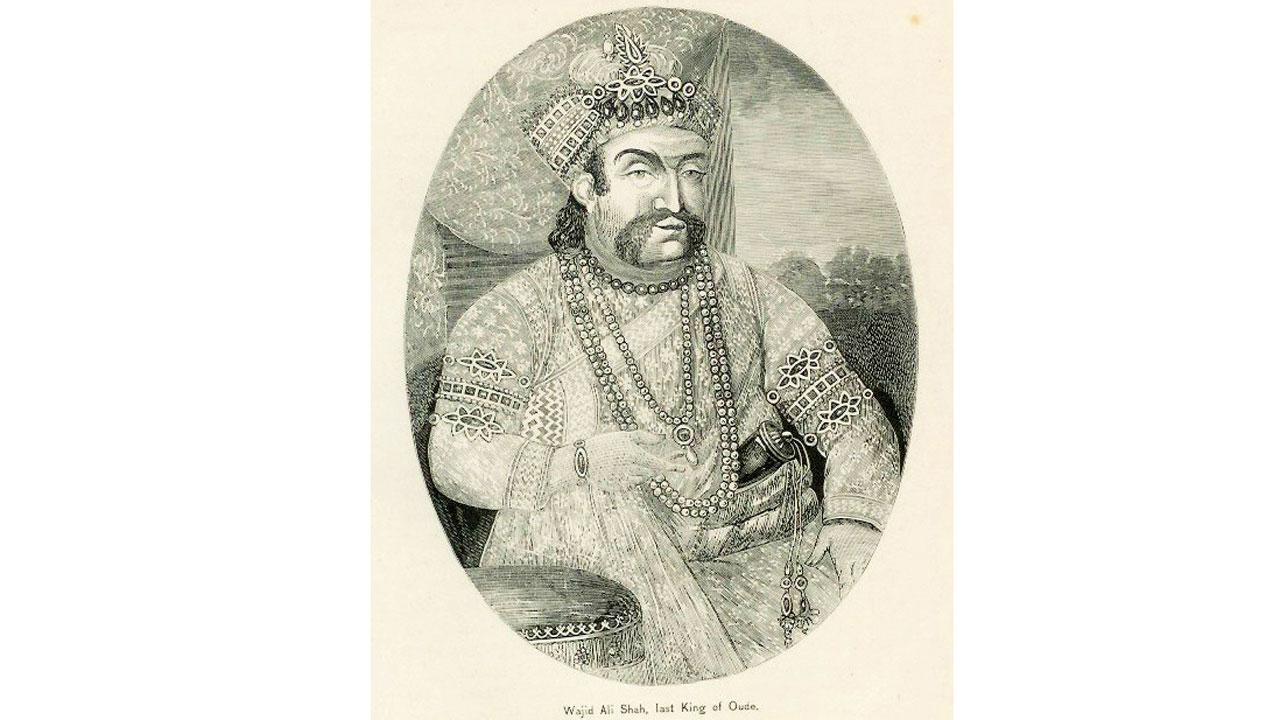
An engraving of Nawab Wajid Ali Shah. Pic Courtesy/ Wikimedia Commmons
The recipes, chef Fatima recalls, were never written down. Through generations of kitchen conversations between grandmothers, mothers and daughters, the right mix of spices, ingredients and temperatures were passed down. “In fact, I did not take the recipes seriously till I got married,” she admits. Over countless visits and landline phone calls, the chef would painstakingly reconstruct dishes till they tasted just right.
Biryani with a difference
Among the recipes is the famed Calcutta (Kolkata) biryani, a survivor from the tumultuous period of the exile of Nawab Wajid Ali Shah. After the nawab was dethroned and exiled to Metiabruz in Kolkata, he sought to create a mini-Lucknow.
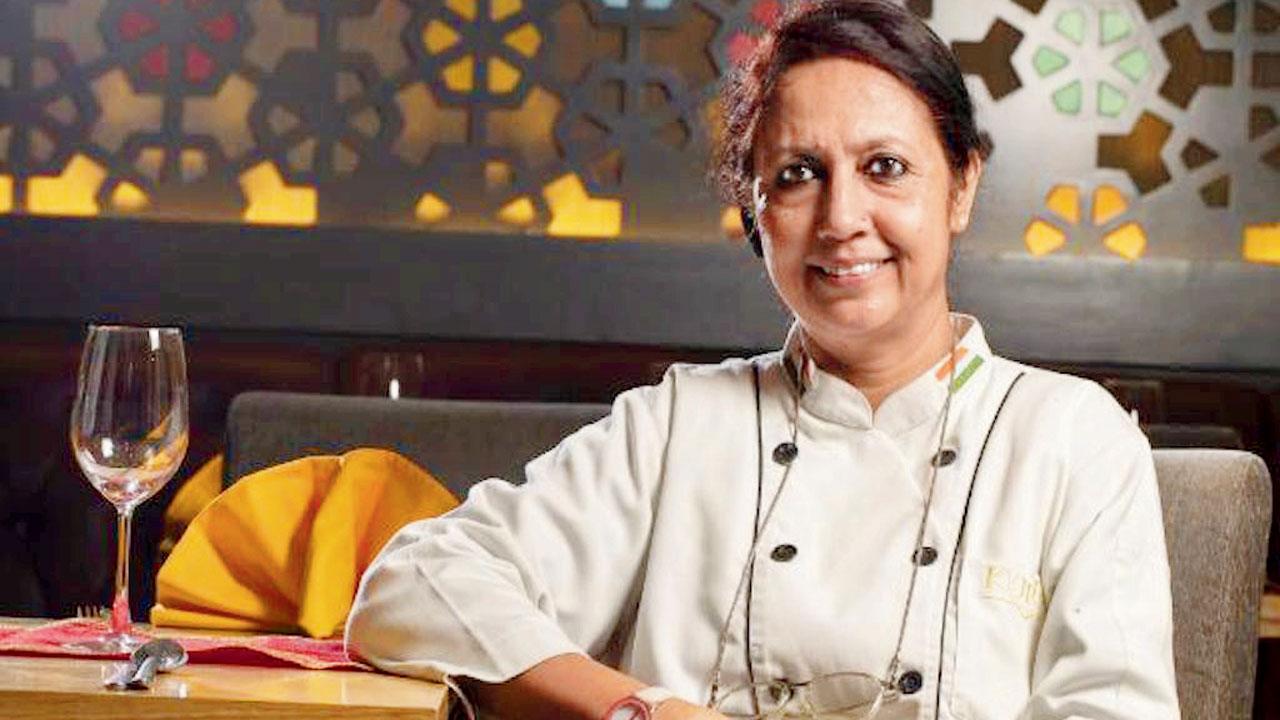
“In Lucknow, the palace would see food arrive from seven kitchens led by chefs approved by the Nawab. In Bengal, he only had one kitchen. They had to resort to innovations,” the chef remarks, pointing to the potato in the Kolkata biryani.
Why the ordinary potato, we wonder? “It was an exotic vegetable back then,” chef Fatima corrects us. In the early 19th century, the potato was still a new import in the Subcontinent. “It also had this quality of absorbing aromas and flavours from the spices to add substance to the biryani,” she remarks.
Royal innovations
She reveals, “I still remember that my grandmother used to prepare the korma of the biryani in mustard oil. Now, mustard oil is hardly ever used in Awadhi cuisine, but it is an integral part of Bengali tradition.” The famous galouti kabab, for instance, was invented for Nawab Asaf-ud-Daula, another predecessor. “It is believed that as he grew old and was unable to chew meat, the chefs devised the kebab with a punch of meat, as well as the feel of a kebab,” she explains.
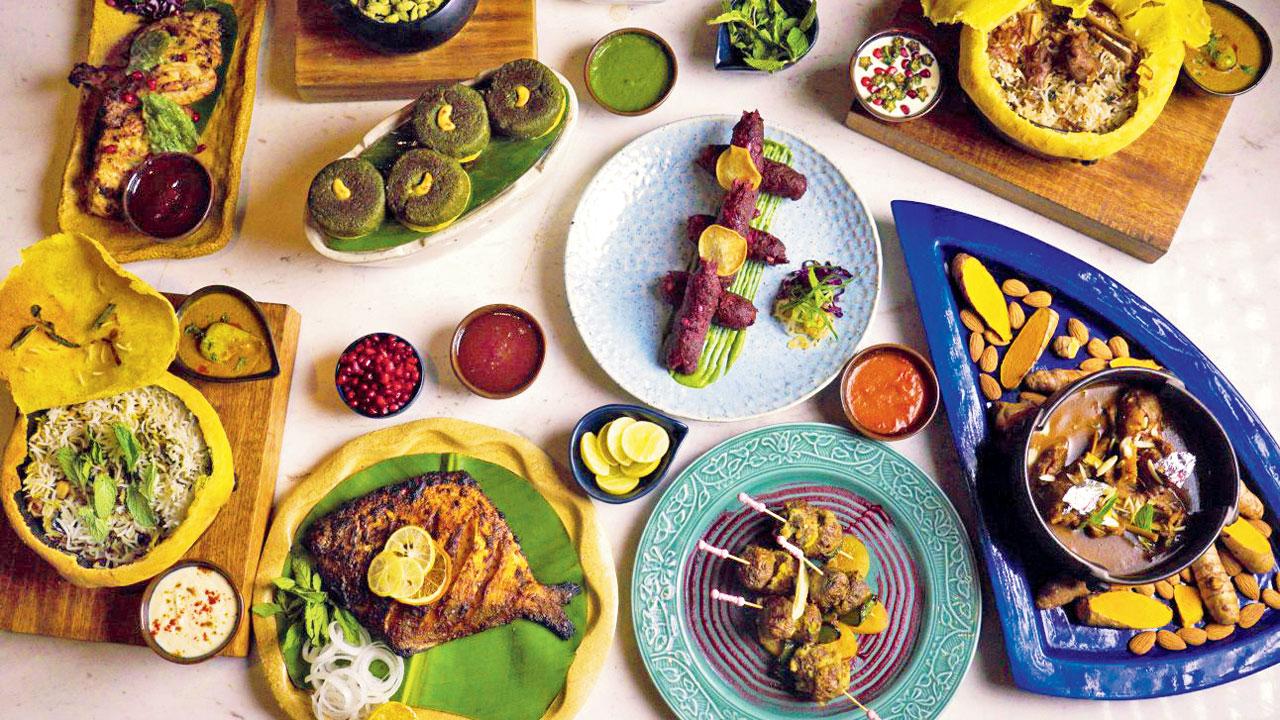
A kebab platter
Exploration of the past
The venture in Mumbai is an example of this continued innovation. Among the highlights will be a rizala of mutton, dahi ki phulki — a signature Awadhi dish, galouti and shami kebabs and the ulta tawa paratha, as well as vegetarian variants such as kababs made of raw banana and rizala with mushroom and lotus stems. There is the vegetarian biryani too. For the purists, the chef says, “It was an integral form of Awadh’s Ganga-Jamuni tehzeeb. Hence, the many variations of dal, arabi ka salan, and pulao make their presence felt.”
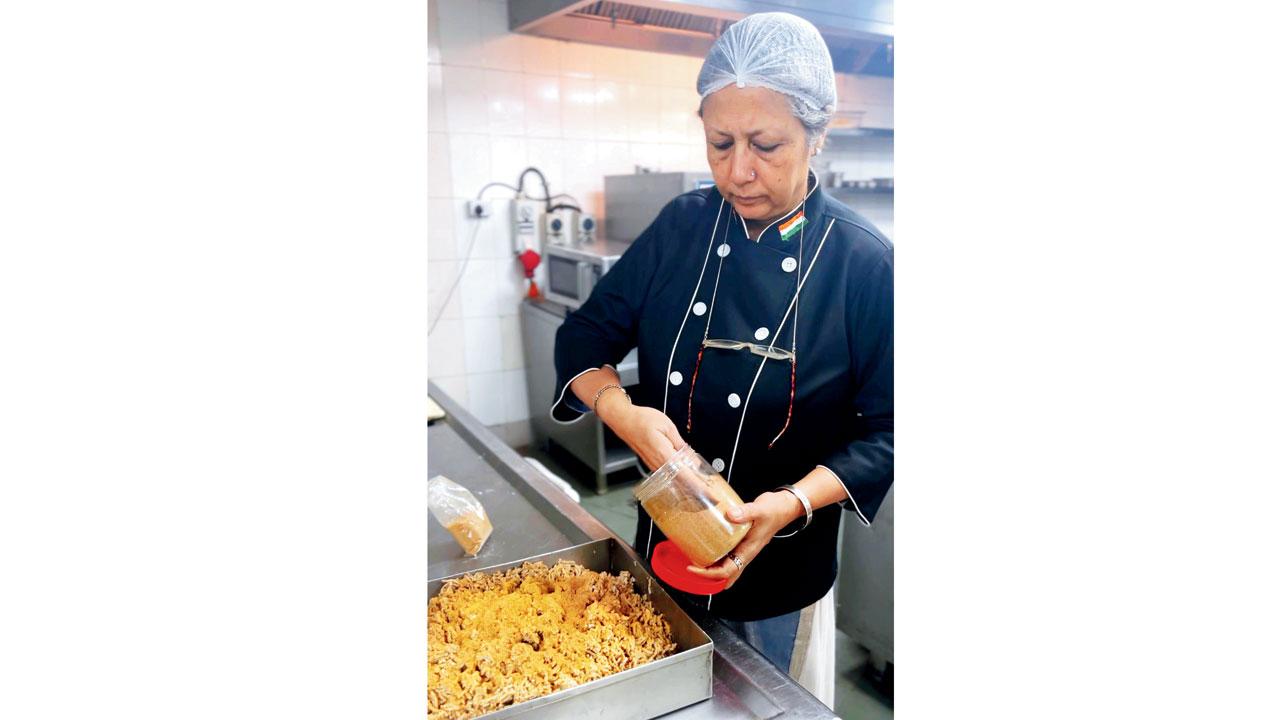
Chef Manzilat Fatima picks out spices for a meal preparation
Safeguarding the legacy
While the oral tradition protects the secrets, the times demand a change. “I am thinking of writing down the recipes for a book,” she admits, adding that documentation is a necessary step to protect the culture from vanishing with time. “After all, I cannot let it end here,” she emphasises.
Till: August 27; 6.30 pm onwards
At: Ummrao Courtyard by Marriott Mumbai International Airport, CTS 215, Chakala, Andheri West.
Call: 8976708345 for reservations
Cost: Rs 2,999 onwards (non-vegetarian menu); Rs 2,499 onwards(vegetarian menu)
Dahi ki phulki
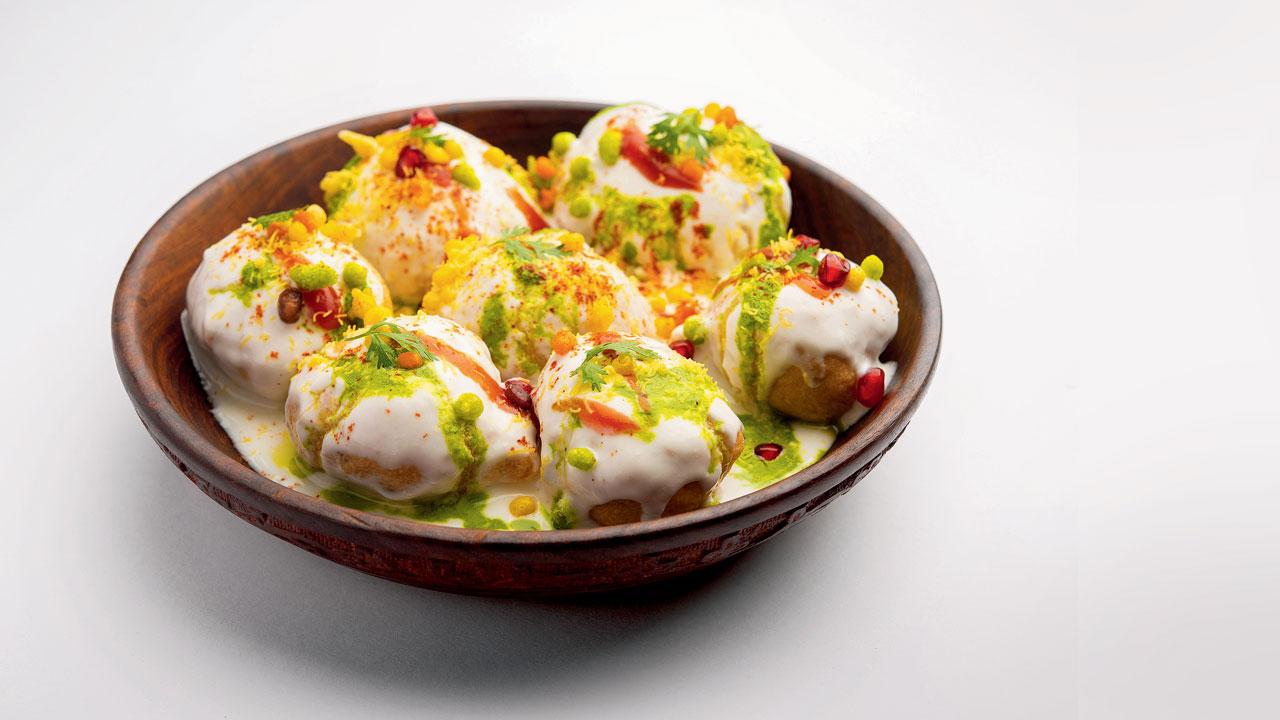
Ingredients
For the phulki
>> 1 cup besan ( gram flour)
>> 1/2 tsp red chili powder
>> 1/4 tsp garlic paste
>> 1 pinch baking soda
>> Salt to taste
For the dahi
>> 1 tsp black rock salt
>> 1 tsp salt
>> 500 gm thick curd
>> 2 red chillies
>> ½ tsp whole jeera
>> 1 tsp roasted jeera powder
>> 1 tsp garlic paste
Method
For the phulki
Put all the ingredients in a bowl, add water slowly and whisk to a thickish batter. Let it set for five to seven minutes.
For the dahi
Take water in a bowl. Add salt, red chilli and some garlic paste. In another bowl, take thick curd. Add some red chilli powder, roasted jeera powder, garlic paste, black rock salt and plain salt to taste. Whisk till it is creamy and add water to a nice pouring consistency before keeping it aside.
For the dahi phulki
In a pan, heat some oil on a medium flame. Put blobs of the besan mixture (phulki) in hot oil and let it cook. You will notice the inside batter oozing outwards. Stir lightly and turn them in the pan. Once the phulki is pinkish, strain and place them in the bowl with the water. Let the phulkis soften by soaking the water. After 15 to 20 minutes, softly press the phulkis and put them in the bowl of curd. Let them become softer. In another pan, heat oil, add whole jeera and two whole red chilies, put a tadka of it on the ready dahi ki phulki. Serve as a snack or as an accompaniment to any vegetarian or non-vegetarian dish.
 Subscribe today by clicking the link and stay updated with the latest news!" Click here!
Subscribe today by clicking the link and stay updated with the latest news!" Click here!












